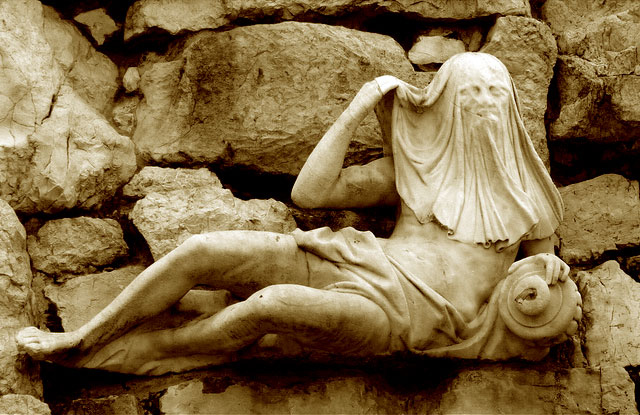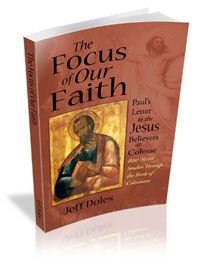Nor is it a view that I can find in the Lord Jesus Christ, who is the perfect expression of God. As I think of his Parable of the Prodigal Son, the image of God portrayed there, as loving father, is quite at odds with the image the above quote presents. The son did not need to be rescued from his father. Rather, he was rescued from a wayward and broken life by his father. Likewise, though we all have very great need to be rescued by God, how can we ever imagine that we need to be rescued from God? For the Gospel teaches us that God is love. We no more need to be rescued from God than we need to be rescued from love.
Nor is the judgment of God something we need to be rescued from, for it is the judgment of God that comes to rescue us and set us right. We have often been taught that God’s judgment is about retribution. In that view, death and torment and wrath are seen as the divine payback of an angry, offended deity. But neither death nor torment nor wrath are the acts of divine retribution; they are the natural, logical consequences of turning away from God, who is love and light and life.
In the beginning, Adam turned away from God, the very source of his life. And having turned away from life, all that was left for him was death. This was not God’s reprisal; it was what necessarily happens when one turns away from the source of life. God had warned Adam that in the day he ate of the forbidden fruit, “You will die.” But notice that God did not say, “I will kill you.” Big difference, that.
The torment that those experience who turn away from God is also a natural consequence. God is the source of peace and joy and all that is good. In turning away from God, they are turning away from those very things. All that is left for them, then, is torment — a life of emptiness and regret, devoid of joy and peace. Again, that is not divine retribution but natural consequence.
God is light, but when one turns away from God, what else is left for them except darkness. “This is the verdict: Light has come into the world, but people loved darkness instead of light because their deeds were evil” (John 3:19). Light came into the world, but those who love evil despise the Light that reveals their evil for what it is, so they dwell in darkness. Yet God does not withhold the light from them. Quite the opposite, Christ gives light to all, but those bound in darkness turn away from the light. The Light of Christ continues to shine in the darkness but the darkness cannot extinguish it, so the Light becomes a torment for those who love the darkness.
God is love. When people turn away from God, they are turning away from the only true source of love. God does not ever cease to love them, but in their depravity, they do not want God’s love, so even the love of God becomes a torment to them.
Now we come to the wrath of God. Yet not even that is a matter of divine retaliation. Paul speaks of it quite differently. He addresses God’s wrath head-on in Romans 1. But notice how he describes it. Three times Paul says, “God gave them over” — to their sinful desires and self-degradations (v. 24), to their shameful lusts (v. 26) and to their depraved minds (v. 28). God’s “wrath” is not something he pours out in retribution; it is simply giving the wicked over to their wickedness, which brings its own consequences. There is nothing more terrible than for God to give us over to our own ways.
Think again of the loving father in Jesus’ parable. He let his prodigal son go his own way — but it was so the son might repent and be restored. The son did finally come to his senses, remembering his father, and returned home. The father had been watching for him all along, for he continued to love him nonetheless. When his son was still a long way off, the father ran out to embrace him. “For this son of mine was dead and is alive again; he was lost and is found.”
God’s judgment and wrath are not for the purpose of retribution but for the purpose of restoration. God does not overcome evil with evil. He does what the apostle Paul instructs every Christian to do: He overcomes evil with good — should we not expect God to practice what he preaches?
So the cross was never about Christ saving us from God. It was always about Christ saving us from breaking the power of darkness, death, sin, fear and whatever keeps us from returning to God. The cross was indeed a divine judgment: it was where God judged the darkness with Light, where he judged death with Life, and where he judged demonic hate and fear and selfishness with divine, self-giving Love.





















